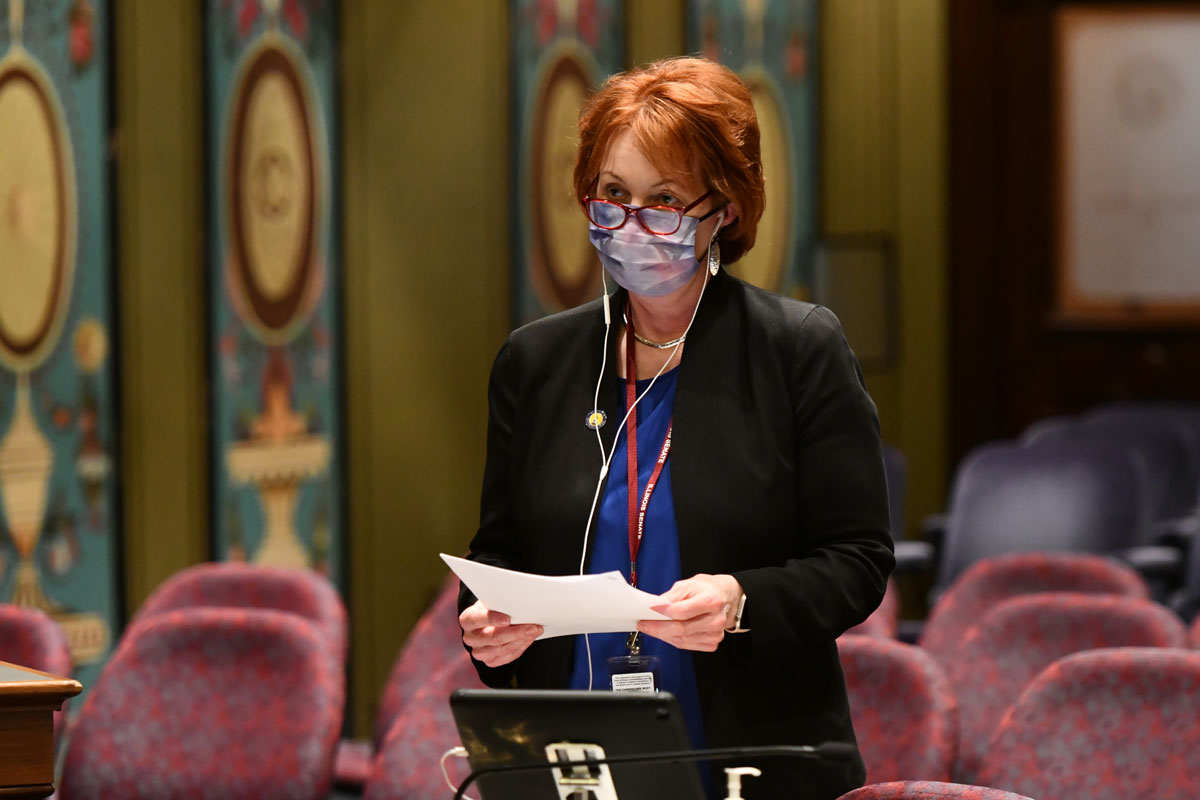 SPRINGFIELD – Illinois’ first comprehensive ethics reform package in over a decade, introduced by State Senator Ann Gillespie (D-Arlington Heights), is one step closer to becoming law as the Illinois House concurred with the governor’s amendatory veto today.
SPRINGFIELD – Illinois’ first comprehensive ethics reform package in over a decade, introduced by State Senator Ann Gillespie (D-Arlington Heights), is one step closer to becoming law as the Illinois House concurred with the governor’s amendatory veto today.
“This measure offers bipartisan solutions to target some of the worst abuses of power in our state’s history,” Gillespie said. “Our plan closes many of the loopholes that have allowed bad actors to game the system for decades.”
The legislation would make several ethics reforms, including prohibiting elected officials from lobbying other units of government, closing a loophole which allowed lobbyists to avoid disclosure, prohibiting all political fundraisers during legislative session, prohibiting salaried appointees from serving as an officer for a political committee, and pro-rating the salaries of General Assembly members who leave office prior to the end of their term.
The measure would also strengthen the statement of economic interest form, a document on which a candidate must declare the assets they hold and how they may be a conflict of interest; allow the Legislative Inspector General to open an investigation without the approval of the General Assembly; create a statewide lobbyist database; and establish a six-month revolving door ban.
In August the Illinois Senate also passed Senate Bill 18, the Energy Transition Act, which includes provisions to address allegations that ComEd misappropriated ratepayer funds to cover costs associated with a recent bribery scandal.
Senate Bill 18 would require the Illinois Commerce Commission to investigate ComEd and levy penalties, which could include refunding money to ratepayers, if it finds the company misappropriated funds. It would also establish internal ethics provisions for all electric and natural gas utilities, require lawmakers to disclose any immediate family members employed by a public utility, and prevent utilities from recovering criminal penalties by increasing charges to ratepayers.
The governor issued an amendatory veto on Senate Bill 539 to address a technical drafting error, and it awaits the governor’s certification before becoming law.













 © 2026 Illinois Senate Democratic Caucus
© 2026 Illinois Senate Democratic Caucus